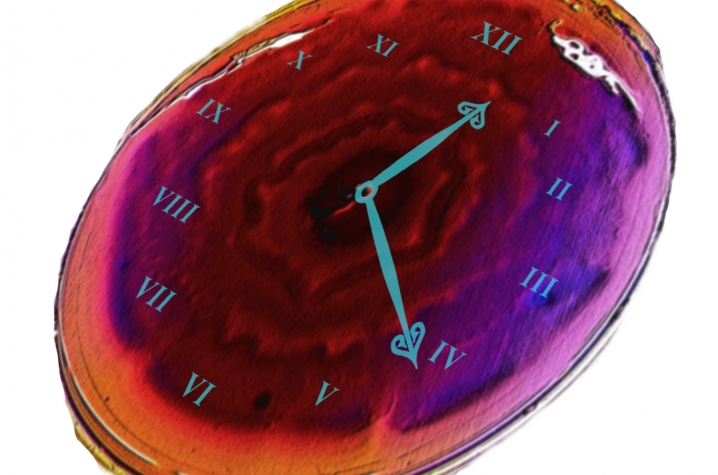UK Researchers: Gut Bacteria Have Own Circadian Clock

LEXINGTON, Ky. (Aug. 8, 2016) — The circadian rhythm, or circadian clock, is an internal mechanism that drives the 24-hour cycles that tell our bodies when to sleep, wake and eat — and now, new research has found that bacteria living within the gut also have a clock.
"We are the directors of that clock, much like the sun directs our own circadian rhythms!" said Jiffin Paulose, UK post-doctoral scholar and co-author of the study in PLOS ONE.
Paulose and Professor and Chair of the Department of Biology Vincent Cassone found that a certain class of bacteria found in the human gut, Enterobacter aerogenes, expresses circadian patterns because of its sensitivity to melatonin, the hormone produced at night and stimulating sleep.
While melatonin is made by the pineal gland, a small gland in the brain, it is also present throughout the gastrointestinal (GI) system. In addition, many foods contain melatonin. The GI system's circadian clock is coordinated to both light and the timing of eating.
Paulose said the effect of melatonin on this bacterium is remarkable: when exposed to melatonin at levels similar to those found in the gut, the individual cells begin to communicate with each other and coordinate periods of swimming and dividing in a phenomenon known as swarming.
"This swarming in the presence of melatonin occurs every 24 hours and keyed us toward finding the circadian clock," he said.
This is the first demonstration of a circadian clock in a prokaryote outside the phylum Cyanobacteria, and the researchers' findings suggest that the cyanobacterial and E. aerogenes clocks share common evolutionary ancestors.
"If our future work demonstrates this is true, then the evolution of circadian organization predates the emergence of oxygen generating photosynthesis some 3.5 billion years ago," Cassone said.
Their findings also point to the overall circadian organization in vertebrates as being an arrangement of multiple circadian pacemakers organized in a hierarchical system of clocks. Paulose said now they must consider the bacteria that coexist within the body as part of that hierarchy.
"Not only are we sending signals (like melatonin) to the bacteria in our guts, mouths, skin, etc., but they are also sending signals back that affect us; from the molecular level all the way up to our behavior," he said. "The biological and clinical significance of this grand scale of circadian coordination will be important to discover in the very near future."
UK is the University for Kentucky. At UK, we are educating more students, treating more patients with complex illnesses and conducting more research and service than at any time in our 150-year history. To read more about the UK story and how you can support continued investment in your university and the Commonwealth, visit uky.edu/uk4ky. #uk4ky #seeblue
MEDIA CONTACT: Whitney Harder, whitney.harder@uky.edu, 859-323-2396




